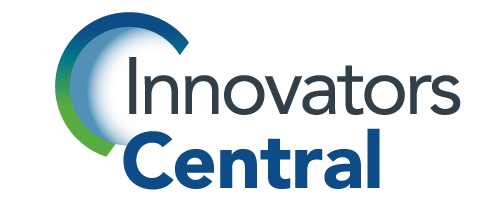We are all guilty of it: mindlessly drinking our morning beverage of choice, without really being present. Spend some time with Dr. Sarah Hunter (she/her) and your perspective of this daily routine might change for the better. She is a passionate optimist who believes mindfulness has the potential to maximize the best asset we have – time. She has been at the helm of a grassroots mindfulness movement at Georgian and now supports research and innovation projects in the non-profit sector at the global social enterprise, Mindfulness Without Borders.
According to Sarah, mindfulness is something everyone can do and reluctance towards practice is often due to a lack of understanding of what mindfulness involves. “It’s not synonymous with meditation. It’s moments of pause and intention,” says Sarah. Learn more about her research on the benefits of mindfulness and you might make some changes to how you drink your morning coffee.
Sarah and her colleague Nicole Adams, Research Co-ordinator from Waypoint Centre for Mental Health Care shared their research during a Research, Innovation, and Scholarship Lunch and Learn event. During the session, Sarah led attendees through brief mindfulness practice and her efforts to put us all at ease and make the practice accessible for everyone were felt immediately when she said, “one of the first steps to build mindfulness is attention. Noticing when you are distracted is building the muscle of mindfulness.” There is no one right way to practice mindfulness and it is something we should all work towards incorporating before stressful times cause overwhelm and burnout.
Collaborating to help our health care workers
In 2020, the onset of the COVID-19 pandemic placed added demands on healthcare workers and their ability to manage stress. Seeing this need, Sarah secured National Sciences and Engineering Research Council of Canada (NSERC) COVID-19 Accelerated Rapid Funding and worked with Adams and other colleagues at Waypoint to examine the efficacy of a brief mindfulness program on healthcare workers burnout and well-being.
Since most of the previous research on mindfulness is based on in-person and longer mindfulness programs, this study aimed to do something different. Researchers wanted to address the efficacy of digital delivery and brief programs and whether a condensed program facilitated by healthcare workers, for healthcare workers could move the needle on well-being. Findings from this project have been presented internationally and are pending peer review.
Sarah, Nicole, and their colleagues from Waypoint explored the sustained effects of a brief online program on burnout, empathy, and resiliency through the phases of pre-survey, post-survey, follow-up surveys and observation. Sarah says, “the goal was to wrap participants in compassion and care through the experiential learning program.” It was offered free of charge, at a variety of times to accommodate different schedules and included check-ins and guided mindfulness practices.
Sarah shared details about how the study was conducted as well as some interesting stats about the composition of the study group that included 131 healthcare workers across Simcoe Muskoka area. It is interesting to note that 93% of study participants were female and 64% had no previous mindfulness experience. In their work, the research team highlighted that mindfulness and self-care are often stereotyped as primarily female activities which might explain why the study group composition skewed this way.
Results of the study indicate that participants experienced and sustained a significant decrease in emotional exhaustion and a significant increase in their personal accomplishment score. Sarah and her colleagues concluded that a brief mindfulness program can move the needle on wellbeing, but that it is most helpful to develop resilience and coping skills early on in one’s career. Doing so helps employees more effectively manage stress and head off potential burnout before it hits.
Being mindful can be as simple as “enjoying your coffee, smelling your coffee, rather than getting right to the bottom of it,” says Sarah. Take a few moments to experience it with all your senses: close your eyes, taste it, smell it, and notice the steam rising from your cup. That is mindfulness. Slowing down your morning routine is not selfish – it is self-care. Doing so will ease you into your day and might just shift your mindset for the better.
Register to join us for our next Research, Innovation and Scholarship Lunch and Learn event.
If you missed Dr. Hunter and Nicole Adams’ presentation you can view it on Bernick Online, Research, Innovation, and Entrepreneurship’s (RIE) YouTube channel. Be sure to SUBSCRIBE while you are there so you do not miss any of the content from our team.




